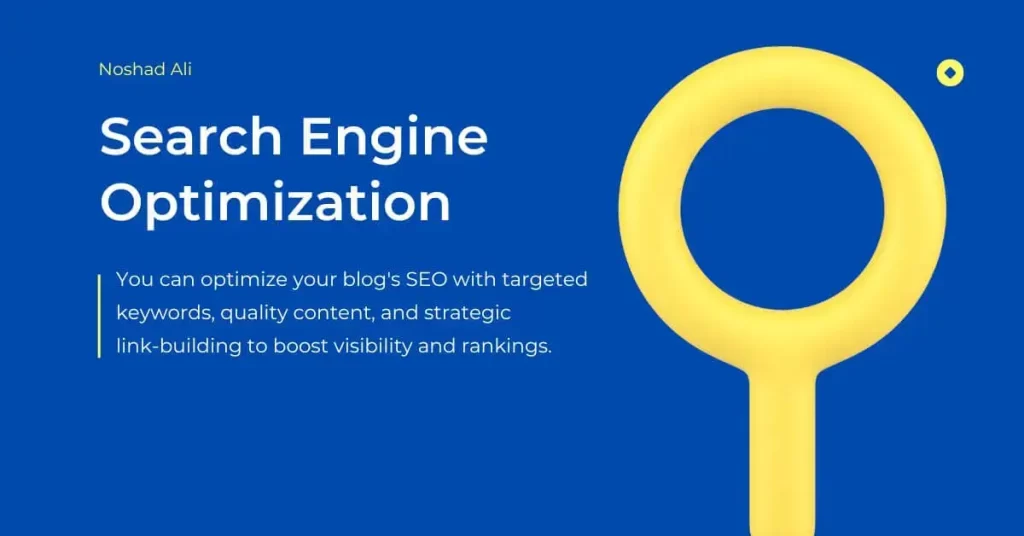When I started my journey into the blogging world, I was just like you—curious, a bit unsure, but excited about the possibilities. I remember sitting in my room, thinking about how cool it would be to share my ideas with the world and maybe, just maybe, make some money from it. Let me tell you, diving into blogging was one of the best decisions I’ve made! And guess what? You can start making money from your blog in just three months!

Understanding Blog Monetization
Now, I know what you might be thinking. “Can I start from my blog that quickly?” It might sound daunting, especially when balancing work, sports, or clubs. But here’s the scoop: with a clear plan and dedication, you can start seeing from your blog in a few short months.
In this guide, “Make Money Blogging in 3 Months,” I’m excited to walk you through the steps that helped me turn my blogging hobby into a rewarding venture. Let’s embark on this exciting journey together and unlock the potential of your blog!
Exploring Various Blogging Revenue Streams
When I first began to unravel the potential of my blog, I discovered that the opportunities to make money were as varied as the topics I could write about. Blog revenue streams aren’t just about ads or sponsored posts, although those are a good start.
Imagine this: each blog post you write can be a seed that grows into different types of financial fruits. For instance, affiliate marketing allows you to earn commissions by recommending products you genuinely enjoy. If you’re passionate about crafts, sharing your preferred tools can lead to commissions whenever someone buys through your link.
Alternatively, you could create your products, like digital guides or eBooks, sharing your expertise for readers to benefit from. Each of these streams flows into the river of your blogging income, growing broader and deeper as you explore and expand them.

Success Stories: Bloggers Who Profited Quickly
Blogging can transform a simple hobby into a powerful income-generating platform. Many bloggers start their sites as a side project, only to find themselves at the helm of highly influential and profitable online businesses. Their success largely stems from their skill in regularly creating engaging content, genuinely connecting with their audience, and effectively monetizing their website traffic.
Examples of successful blogs:
Nomadic Matt – Matt Kepnes, better known as Nomadic Matt, started his travel blog to help people travel cheaper, longer, and smarter. His blog offers detailed guides, budget tips, and personal travel stories that have helped millions of readers venture into the world more affordably. The blog’s success has allowed Matt to publish books and create online courses focused on travel.
Smart Passive Income – Pat Flynn started Smart Passive Income (SPI) to document his experiments in making money online. His blog has grown into a massive resource on passive income and online bbecomerategies. Pat’s transparent approach, where he shares his income reports and the strategies that worked (or didn’t), has earned him a loyal following and substantial earnings from various online ventures.
These blogs show that with the right mindset and commitment, blogging can certainly become a rewarding career.
Case Study
Ring stories in the blogging world comes from Joanna Goddard, the creator of “A Cup of Jo.” Starting as a weekend hobby while Joanna worked at a magazine in New York City, her blog quickly transformed into a full-time career. “A Cup of Jo” covers many topics, including fashion, beauty, food, travel, and parvariousts Joanna apart is her unique voice and the intimate, thoughtful content that resonates deeply with her audience. Her success illustrates how personal storytelling and genuine connections with readers can turn a simple blog into a beloved lifestyle brand. Joanna’s journey from magazine writer to blogging sensation showcases the potential for passionate writers to carve out their own niche in the expansive digital landscape
Case Study 2:
The Tech Reviewarques Brownlee, also known by his YouTube channel name, MKBHD, is a prime example of success in reviewing. Marques started his blog and YouTube channel as a hobby in high school, where he initially reviewed hardware and software that he personally used or was interested in.
His clear, detailed, and honest reviews quick a large following. Today, MKBHD is one of the most trusted names in technology reviews among millions of subscribers and viewers among multiple platforms. His ability to explain technology in an accessible and engaging way has not only won him numerous awards but alsogiven him opportunities to interview tech giants Bill Gates. Marqueandney from a teenage hobbyist to a tech influencer highlights the power of passion and consistency in the tech blogging world.
Setting Realistic Earnings Expectations
When you’re just beginning, it’s crucial to realistically understand how to earn money from a blog. Many bloggers dream of instant success and substantial income, but the reality is that blogging income grows gradually. At first earnings might come in small amounts through methods like ad placements or affiliate marketing. Over time, as your audience grows and your content strategy se numbers can increase. It’s crucial to set achievable goals and patiently build your blog’s reputation.

Keep in mind that the most successful bloggers spent years honing their craft and understanding their audience before earning substantial income. By setting realistic expectations, you’re laying a solid foundation for potential future success without setting yourself up for early disappointment.
Essential Steps to Start Making Money Quickly
Starting the journey of earning money through blogging demands a well-thought-out strategy. If you’re keen to monetize your blog and achieve tangible results quickly, there are a few crucial steps you need to follow. It’s not just about linking your passion to practical revenue streams; you also need to understand your audience, use the right monetization strategies, and consistently provide value to ensure readers keep returning.
Below, I’ll walk you through some foundational steps that will not only boost your blog’s visibility but also enhance its potential to generate income swiftly. Let’s dive into these actionable strategies that can help transfologging hobby into a profitabandess.
Choosing a Profitable Niche
One of the first and most critical steps in creating a successful blog is identifying a niche that is not only close to your heart but also profitable. The sweet spot? Finding profitable niches with low competition. This strategy allows you to avoid competing with numerous esablis,hed blogs, and instead, create a distinct niche for yourself. Begin by evaluating your interests and skills, followed by performing market research to pinpointreas within the blogging sphere. Look for topics that people are interested in but aren’t extensively covered online. Whether it’s niche hobbies, emerging technologies, or unique lifestyle choices, choosing the right niche can significantly enhance your chances of early and sustained profitability.
Mastering SEO Basics for Higher Traffic
Understanding the basics of SEO (Search Engine Optimization) is crucial for building a strong presence in the world of blogging. SEO blends creative and technical elements to improve your blog’s visibility on search engines like Google. It starts with fundamental practices such as using the right keywords, optimizing your blog posts’ titles and descriptions, and ensuring your content is high-qulikend valuable to your readers. Learning how to effectively use SEO techniques can dramatically increase your blog’s visibility and attract more traffic. For example, using long-tail keywords, which are specific yet face less competition, can attract an audience that is more precisely targeted and eager to interact with your content.

Keep in mind that SEO aims not only to boost traffic but aa to attract the relevant audience that will engage and remain interested.
Keyword Optimization Techniques
Optimizing your blog for the right keywords is like setting up signposts that guide readers from search engines directly to your posts. Keyword optimization entails the deliberate placement of pertinent keywords across your content to enhance its visibilitydirectly in search results. It starts withnsive keyword research to pinpoint the termsdeliberately placingget audience.
Once identified, incorporate these keywords naturally into your titles, headers, body text, and even your meta descriptions. However, it’s crucial to avoid keyword stuffing—overloading your content with too many keywords—which can negatively impact readability and SEO. Instead, aimanced approach that enhances your content’s relevance and readability, making it both search engine and reader-friendly.
Understanding Search Intent
Recognizing search intent is crucial for crafting content that directly meets your audience’s requirements. Search intent denotes the rconductsor conducting a particular search on a search engine. For example, transactional keywords indicate that a user is ready to purchase or engage in a transaction. Recognizing these types of keywords can help you craft content that directly addresses the user’s intentions. When you write a blog post with a clear understanding of whether your readers are looking to buy, learn,specific information, you can optimize your content to satisfy those needs more effectively. This alignment boosts your SEO and increases the relevance and wantour blog to those who land on your page.

Building an Engaging Content Strategy
A thoughtfully designed content strategy forms the foundation of every successful blog. It’s not merely about crafting content, but about developing material that connects with and captivates your audience. To create a successful content strategy, begin by identifying your audience’s interests and challenges. Understanding this enables you to customize your content to deliver genuine value by addressing critical issues and responding to identify audience inquiries. Include diverse types of content like tutorials, interviews, evaluations, and personal anecdotes to maintain an engaging and dynamic blog.
Remember, consistency is key in contsignificant inquiriesften you post, but in maintaining the quality and voice that your readers have come to expect. By committing to a strategic and thoughtful approach to your content, you set the stage for increased engagement and loyalty among your followers.
Content Planning Tools
Effective blogging isn’t just about having great ideas; it’s also about organizing those ideas in a way that boosts productivity and consistency. That’s where content planning tools come into play. Tools like Trello, Asana, and Google Calendar can help you schedule your posto maximize ensure that you’re consistently engaging your audience without feeling overwhelmed. For content ideation and keyword planning, tools like BuzzSumo and Ahrefs are invaluable. Incorporating these tools into your blogging routine streamlines your workflow and improves the quality and impact of your content by offering insights on trending topics and high-performing keywords for content ideation and keyword planning.

Tips for Viral Content Creation
Creating content with the possibility of becoming viral requiresyour content’sblend of creativity, timing grasp of what your audience likes. To excel in conthat can become attention, start with engaging headlines that spark curiosity and promise value. Use compelling visuals and videos to complement your text, as these are more shareable across social platforms. Emotionally charged content, whether it’s humorous, inspiring, or even controversial, tends to perform well because it resonates deeply with readers and prompts them to share with others.
Additionally, consider the format and timing of your posts; listicles, how-to guides, and posts that tie into current events or trending topics are more likely to catch fire. Finally, don’t forget to encourage interaction by asking questions and inviting comments to keep the conversation going.
Effective Use of Affiliate Marketing
Utilizing affiliate marketing effectively can be a potent asset for your blogging efforts, especially when done with accuracy. Unlike multi-level marketing (MLM) schemes, affiliate marketing emphasizes performance-based earnings from direct sales or referrals without requiring the recruitment of others. To optimize your affiliate marketing endeavors better, focus on programs that closely match your blog’s niche and align with your audience’s interests.
Moreover, modern technologies like AI-powered affiliate marketing tools can significantly improve your approach by anticipating the products your audience will buy and optimizing your affiliate links accordingly. Implementing strategic and targeted affiliate marketing tactics allows you to generate a stable income stream while providing genuine value to your audience.

Selecting the Right Affiliate Programs
Selecting appropriate affiliate programs is essential to maximize your income while preserving trust with your audience. When looking for the best options, consider programs that offer recurring commissions, which can provide a steady income as long as your referrals remain customers. This is especially common in software affiliate programs, where monthly subscriptions are prevalent.
Moreover, AI affiliate programs have gained profitability with the advent of artificial intelligence. These programs often offer cutting-edge products that attract tech-savvy audiences. When selecting an affiliate program, look for those that not only offer competitive commissions but also align with the interests and needs of your readers. Aligning strategically ensures that the products you endorse truly connect with your audience, boosting your credibility and the impact of your marketing endeavors.
Tools and Resources for Efficient Blogging
Whether you’re beginning your journey or aiming to optimize your blogging workflow, having the appropriate tools can significantly improve your productivity and impact. Here are three top tools that every blogger should consider integrating into their workflow:
WordPress
The go-to platform for bloggers, WordPress offers flexibility with an easy-to-use interface. It’s perfect for anyone from beginners to advanced users, providing many themes and extensive customization and functionality enhancements. WordPress simplifies the process, whether you’re creating a straightforward blog or a content-rich, complex site.
Canva
A graphic design tool that’s indispensable for creating eye-catching blog graphics, social media images, and more. Canva’s user-friendly drag-and-drop interfacand a wide range of templates make it easy for bloggers to produce professional-quality visuals without needing extensive graphic design
Google Analytics
An indispensable tool for bloggers aiming to develop a deeper comprehension of their audience and improve their content optimization. Google Analytics provides detailed insights into your blog’s traffic, including viewer demographics, behavior patterns, and engagement metrics. This information is crucial for making informed decisions about content strategy and marketing efforts.
Diversifying Income Through E-Books and Courses
Expanding your blog into a platform for selling e-books and courses can be a game-changer in terms of income diversification.row your audience and establish expertise in your niche, converting your knowledge into extensive con,tent such as e-books or comprehensiveine co,urses can generate significant passive income. E-books allow you to delve deeper into subjects you’ve touched on in your blog posts, offering more detailed guidance and insights. Similarly, courses enable you to create an interactive learning experience, which can be more engaging and valuable for your audience. By providing these additional resources, you not only enhance your credibility but enhance your credibility andlement your existing content.
Scaling Up: From Blog to Business
Transforming your blog into a full-fledged business is an exciting step towards more tremendous success. As you evolve from casual blogging to a structured blog for business, it’s essential to adopt a strategic approaadopting a strategic approach is importanand ensurent consistently reflects the values and message of your business. Then, expand your offerings beyond mere posts; consider services or products that can benefit your audience. Engaging with other businesses and influencers in your niche can reveal collaborative possibilities and broaden your audience reach.
Additionally, implementing professional marketing strategies and tools will help you manage your blog more efficiently as a business. This shift not only helps to professionalize your approach but also butnificantly increases the potential for and firmly establishes your blog as a serevenue potential.

Incorporating E-commerce
Adding an e-commerce component to your blog can significantly boost your business potential. By selling products directly through your blog, you create a streamlined path for converting visitors into customers. This could be anything from bespoke merchandise that resonates with your brand, digital products like eBooks or courses, or even curated goods related to your blog’s niche. Setting up an e-commerce platform is simplified today with tools like Shopify or WooCommerce that integrate seamlessly into most blogging platforms. These tools not only facilitate the sale of goods but also handle inventory management and payessing, making it easier thanand expand your blog into a thriving online store. This expansion not onlies your income but also enhances your blog’s value to visitors, providing them with tangiblediversifies your income andy love.
Expanding Into Podcasting or YouTube
Diversifying your content delivery by branching out into podcasting or YouTube can dramatically increase your reach and deepen engagement with your audience. Podcasts provide a distinct chance to engage with listeners through detailed conversations, interviews, and narratives that may not be as impactful when presented in written content.
Likewise, establishing a YouTube channel enables you to harness the impact of video content, especially for tutorials, visual narratives, and engaging content driven by personality. Both platforms also provide additional revenue streams through ads, sponsorships, and viewer donations. By integrating these multimedia ets into your existing content strategy, you cater to diverse audience preferences and enhance your brand’s presence across multiple channels.
Summary
As we’ve the diverse avenues for making your bandofitable venture, it’s essential to pause and reflect on what resonates most with you. Whether you’re considering the immediate steps for monetizing through affiliate mareting, or you’re planning to expand into e-books and online courses, the key is to align these strategies with your personal goals and the needs of your audience. Each choice you make should reflect your passion and contribute to building a sustainable and rewarding blogging business.
Remember, success in blogging doesn’t happen overnight—it’s the result of consistent effort, strategic planning, and a deep understanding of your audience. Take a moment to envision where your blog will be next year, and set actionable steps to get there. Adopting the correct strategy can make your blog a personal endeavor into a flourishing business.
Frequently Asked Questions
1. How long does it typically take to start making money from a blog?
While the timeline can vary greatly depending on niche, content quality, and marketing efforts, many bloggers can start seeing some income within three to six months. However, significant earnings might take longer, typically from one to two years of consistent effort and strategic planning.
2. What are the most effective ways to monetize a blog?
The most effective ways to monetize a blog include affiliate marketing, selling digital products like eBooks and courses, offering subscription services, and hosting paid advertisements. Choosing the right method depends on your blog’s niche, audience, and personal preferences.
3. Is it necessary to invest money to make money from blogging?
Initial investments are not mandatory but can be beneficial. Spendinon a professional blog design, hosting services, and marketing tools can enhance your blog’s appeal and functionality, which may accelerate your earning potential. However, many successful bloggers have started with minimal upfront investments and gradually scaled up as their revenue increased.
4. How do I choose the right niche for my blog?
Choosing the right niche involves assessing your passions and expertise, researching potential market demand, and considering profitability. Choosing a niche that both captivates your interest and offers a sizable audience with monetization potential is crucial. Conducting keyword research and checking competitor blogs can provide valuable insights into a niche’s viability.
